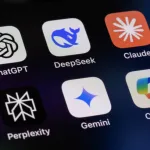The New York Times has taken legal action against tech giants OpenAI and Microsoft, accusing them of leveraging its published content to train their artificial intelligence system, ChatGPT, without proper authorization.
The lawsuit, filed in the Federal District Court in Manhattan, asserts that millions of articles published by The Times were utilized to train automated chatbots, which now pose as direct competition to the esteemed news outlet by disseminating information sourced from its copyrighted material.
Join our WhatsApp ChannelSpeaking about the lawsuit, a representative from The New York Times stated, “Defendants seek to free-ride on The Times’s massive investment in its journalism using The Times’s content without payment to create products that substitute for The Times and steal audiences away from it.”
READ ALSO: Microsoft Denies Safety Concerns Led To OpenAI CEO’s Dismissal
The legal action doesn’t specify an exact monetary value but highlights the demand for “billions of dollars in statutory and actual damages” due to the “unlawful copying and use of The Times’s uniquely valuable works.”
Additionally, it calls for the destruction of any chatbot models and training data employing copyrighted material from The Times.
This move by The Times comes after failed negotiations with Microsoft and OpenAI aimed at addressing concerns about intellectual property use in AI systems. The news organization had sought a resolution involving a commercial agreement and technological safeguards but without success.
Beyond safeguarding its intellectual property, the lawsuit characterizes AI systems like ChatGPT as potential rivals in the news industry.
It raises concerns that users may opt for chatbot-generated responses over visiting The Times’s website, potentially impacting the outlet’s web traffic, which is crucial for advertising and subscription revenues.
The filing cites instances where chatbots provided verbatim excerpts from Times articles, content typically accessible via a paid subscription.
The lawsuit asserts that OpenAI and Microsoft gave significant importance to Times journalism in training their AI programs due to its perceived reliability and accuracy.
Notably, while ChatGPT is an OpenAI product, Microsoft holds a stake in OpenAI through investments.
Microsoft has infused $13 billion into OpenAI and integrated its technology into its Bing search engine. With OpenAI’s soaring valuation surpassing $80 billion and discussions underway for a valuation exceeding $100 billion, the lawsuit marks a critical juncture in the intersection of intellectual property rights and the rapidly evolving AI landscape.
Emmanuel Ochayi is a journalist. He is a graduate of the University of Lagos, School of first choice and the nations pride. Emmanuel is keen on exploring writing angles in different areas, including Business, climate change, politics, Education, and others.


















Follow Us